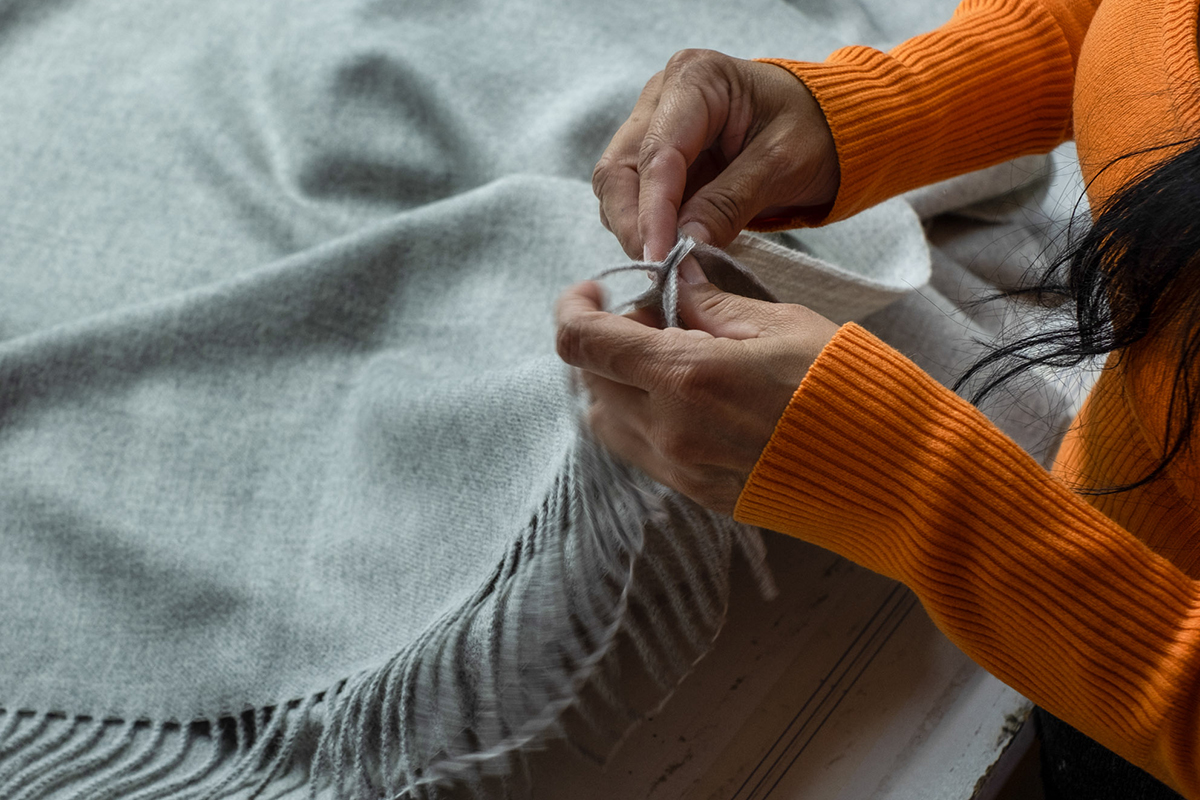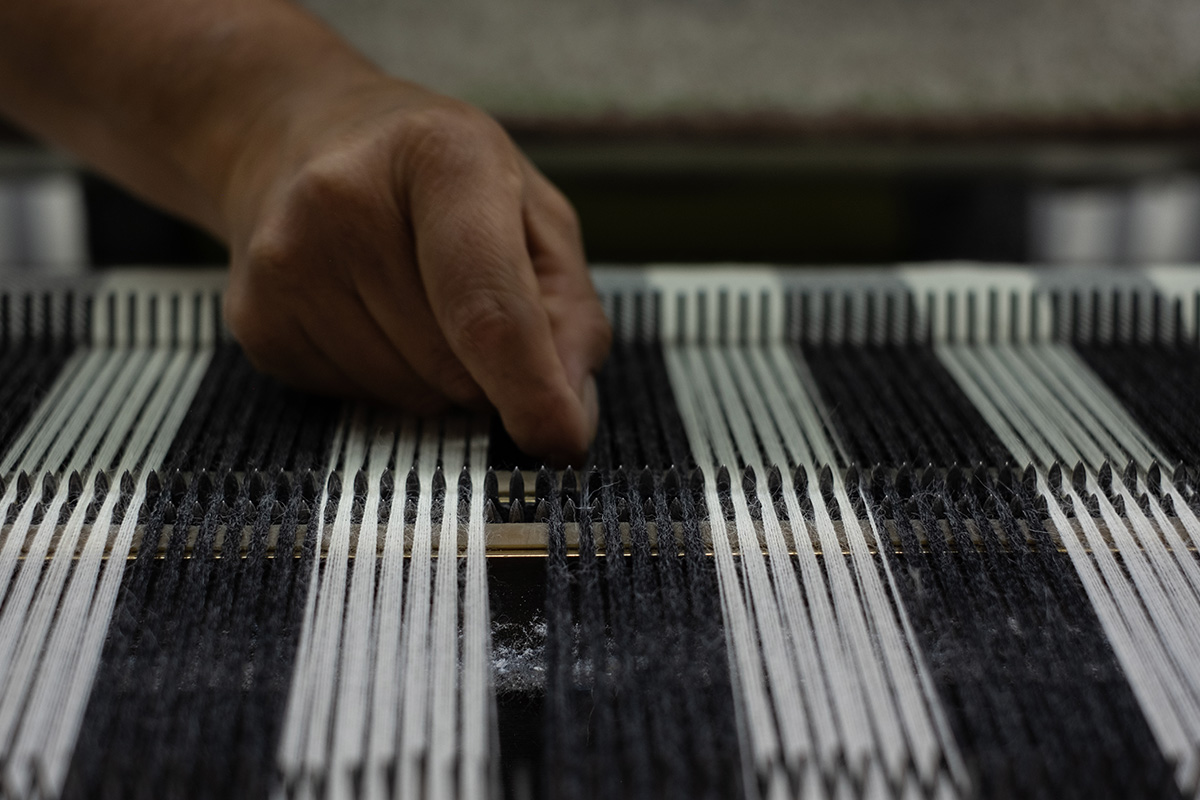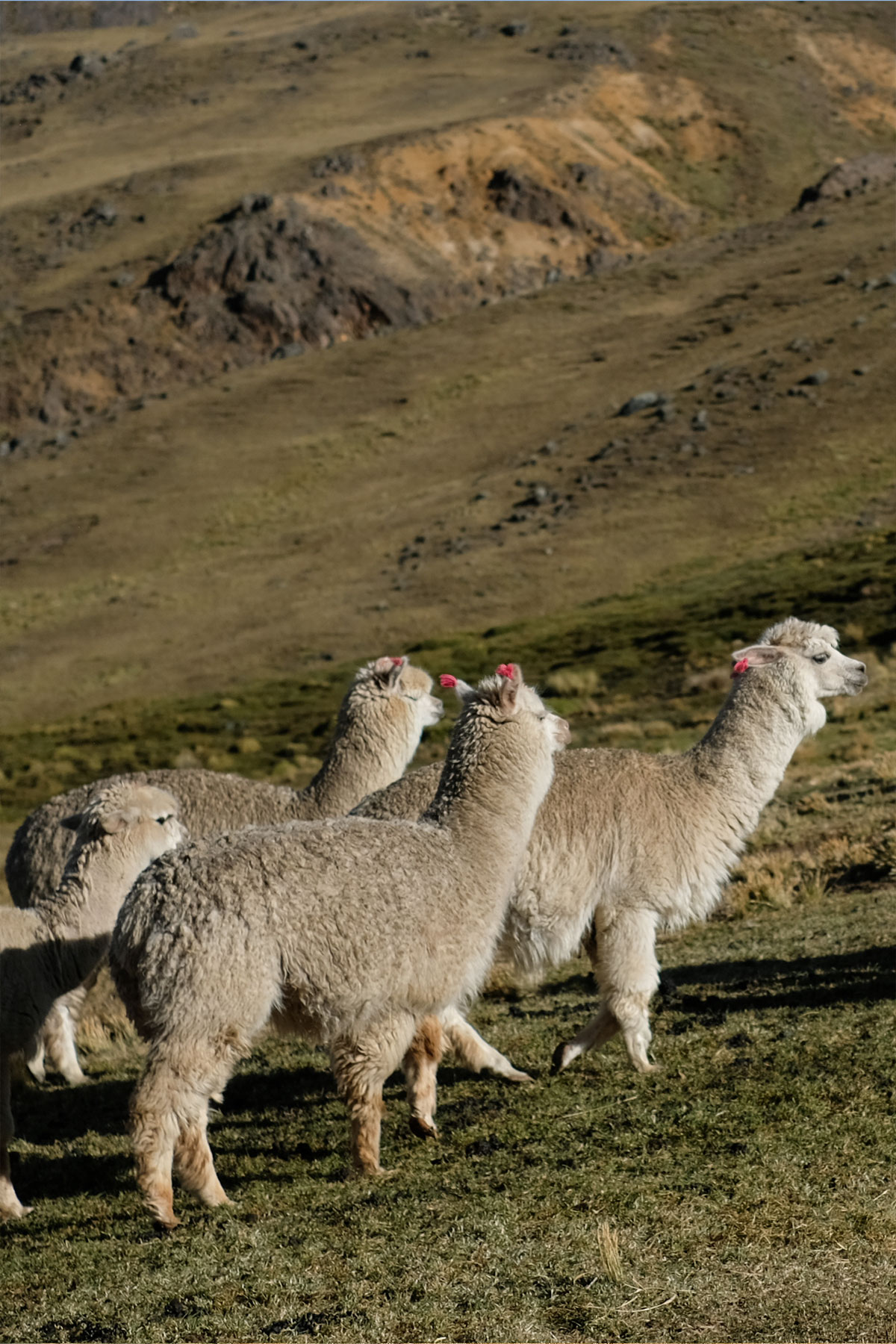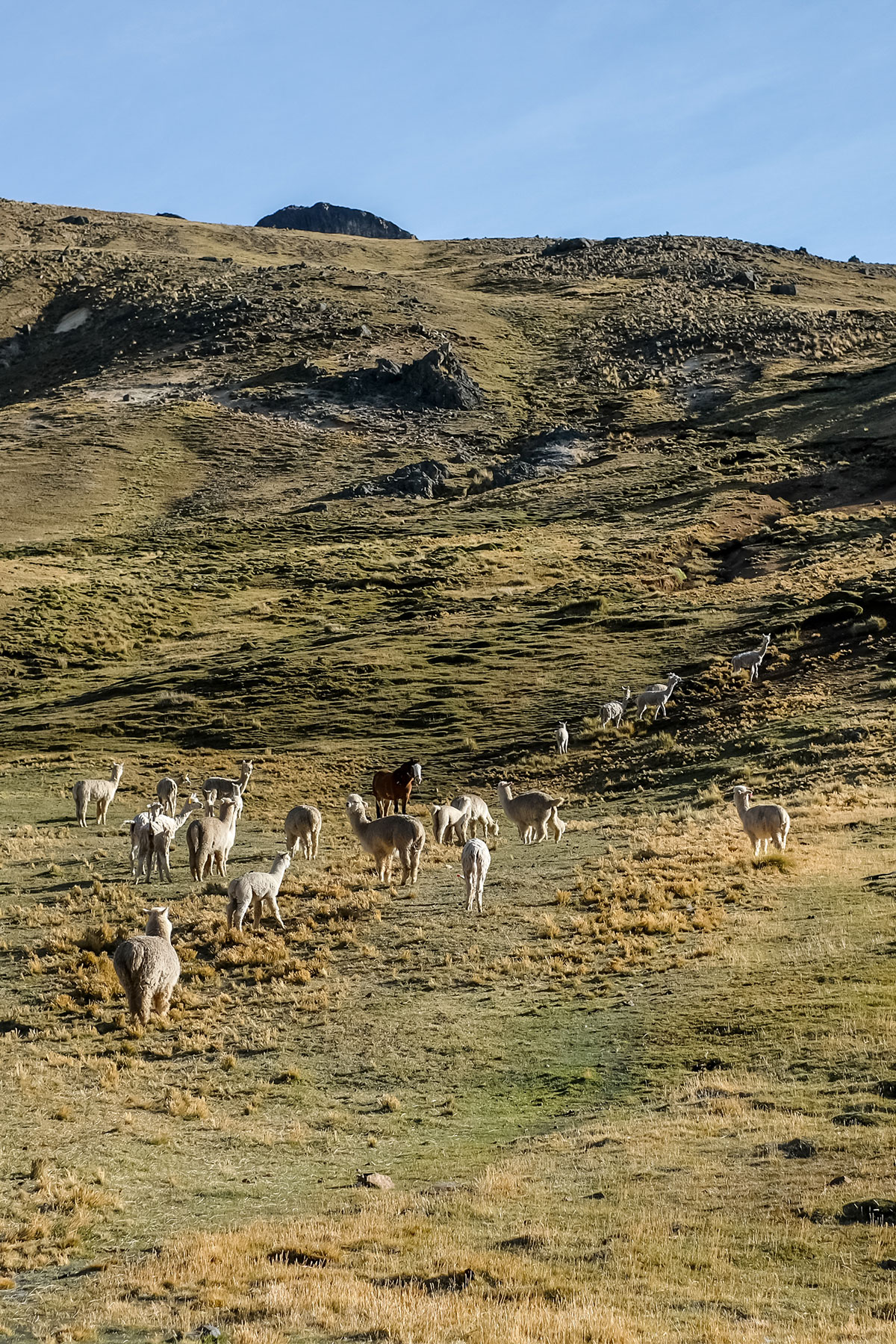SUSTAINABILITY
& ETHICS

WHY IT MATTERS TO US
At ALPAKA we put a lot of thought into each and every garment that we make. In a world filled with short-term products aimed at satisfying immediate urges, we aim to create products that do not compromise the future. We recognise we can do more and we wish to acknowledge this beautiful material, by producing our pieces respectfully, under responsible conditions for both the environment, humans and animals.
WHAT WE ARE DOING NOW
We are working very closely with our producers and visit our factories regularly. We have seen first-hand how they operate and have ensured that the workers are treated fairly and are not expected to work under unsafe conditions.
We have transformed 40-50% of our deadstock yarn to products and encourage our producers to utilise existing materials to their full capacity rather than leave it standing in stock. The remains we will conserve either for reparations or for the new collection sampling.
The quality of the final product depends heavily on the source materials, which is why all of the baby alpaca yarn in our Exclusive collection is sourced from producers who use fibres solely from local small herders in Peru that use sustainable herding and harvesting methods.
Our gift packaging is FSC®-certified, meaning the materials derive from ecologically sound practices and responsible forest management.


WHAT WE WILL DO
We know that how we operate our business today can have a long-lasting impact on people and the planet, which is why we are currently working on identifying any negative environmental impacts of our operations. It is a process that involves working with many others, such as logistics providers, business partners and consumers.
We have set new sustainability goals to reduce plastic waste by opting for less plastic packaging. Plastic packaging is one of the greatest generators to plastic pollution and reducing it is imperative to mitigating further environmental damage.
Our Alpaca wool and fur is sourced 100% cruelty-free

Alpaca wool is sourced exclusively from the highlands, where alpacas live freely with no other cultivation. Their natural habitat includes high mountain foothills in extraordinarily tough climates at 3,500 to 5,000 metres above sea level. This ensures us that both the environment and animals are intact from any chemicals and makes their wool sustainable. They feed gently nibbling only the tops of grasses and other plants, as opposed to ripping roots out of the ground, which results in less soil erosion and depletion. Alpacas are also gentle with the land, as they don’t have sharp hooves like sheep or goats, which minimises their effect on pastures and makes them one of the most environmentally friendly animals in the world.

We often encounter misconceptions that animals need to die for us to use the wool or that shearing is a cruel process that harms the animals. Using the wool is not the same as using the skin of the animal. To produce wool you only need the fleece, meaning the animals are not harmed in the process. Most of the farms in Peru are small family farms whose income depends on these animals to thrive. As the quality of the fleece directly depends on the state and well-being of the animals, it is in the best interests of the farmers to make sure that they are treated well.

Alpacas are simply too valuable to be killed for their fur, so we only use the pelts from animals that have died a natural death, meaning we are using a product that might otherwise have been wasted. As alpacas live for over 20 years, the loss of even a single animal represents a significant economic loss to the farmer. By using the fur, they are able to gain some small compensation for this loss, while we live our value of no wastage. We take pride in creating unique and sustainable pieces that last a lifetime, and hope you will too.

